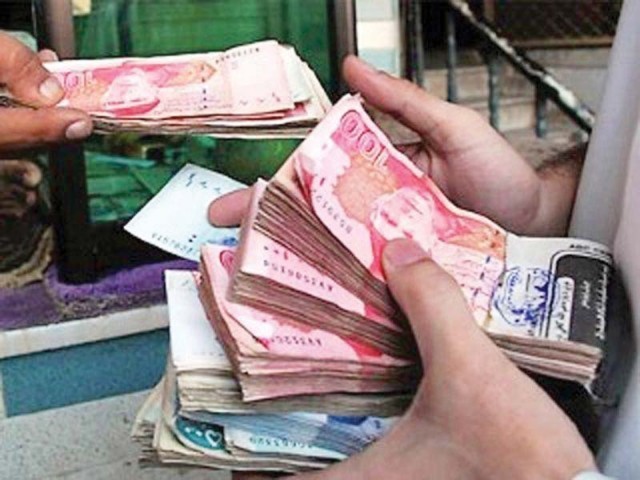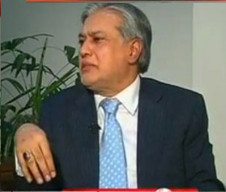
The ruling class of the country seems a staunch follower of the Renaissance period politician and diplomat, Niccolo Machiavelli, who promoted deceit in statecraft to achieve objectives.
The incumbent government is using the same deceitful tactics.
The latest example of the Machiavellian politics is the government’s move to impose Rs40 billion additional taxes on what it calls “luxury goods”. An unrealistic tax target, coupled with an inefficient tax machinery, has led to a situation where a shortfall of Rs40 billion emerged against the July-September tax target of Rs640 billion.
Pakistan, IMF to decide on new sales tax regime
In order to keep the $6.2-billion programme on track, the International Monetary Fund had asked the government to introduce a mini budget, leaving the choice of goods and taxes on the government.
Misguided
A closer look at the list of items that saw an increase in regulatory duty rates shows that more than 95% of these goods are not luxury, but essential items. The 350 items that the government termed luxury goods include brassieres, infant diapers, skirts and all types of imported food items.
Many of these items are imported because these are cheaper than locally produced goods amid the rising cost of doing business.
Are apples imported from China, New Zealand and Iran as off-season luxury fruits? Are cheap brassieres and children garments imported from Thailand and China luxury items for a middle class family that often finds them cheaper than locally manufactured clothes? Can pomegranates, strawberries nuts; peaches; plums; lichis; raisins and mixtures of nuts or dried fruits be labeled luxury?
Pakistan, IMF to decide on new sales tax regime
In fact, a government that was afraid of going to the Parliament to impose new taxes without introducing a new Bill chose an easier path of raising revenues through Statutory Regulatory Orders and burdening the middle class more than the affluent.
Where is the money going?
Since coming into power in 2013, the incumbent government has levied more than Rs920 billion in additional taxes – a figure that has no precedent in the country’s history.
In comparison, the Federal Board of Revenue’s tax collection increased by Rs632 billion to Rs2.588 trillion by the end of June 2015. The collection may increase roughly to Rs3 trillion against this year’s target of Rs3.104 trillion by the end of the current fiscal year.
This leaves us with the question: where is the Rs430 billion that should have been collected due to nominal growth but is not collected. This is also the gap between the tax targets of the previous two years and the actual collection. How much of this has gone in the pockets of FBR officials and politicians?

Before seeking appreciation for increasing tax revenues from Rs1.956 trillion in June 2013 to Rs2.588 trillion by June 2015, the government should first answer this question.
WHT constitutes 70% of total income tax collection
Unexplored alternate paths
A recent fact sheet on the mini-budget by the Institute for Policy Reforms (IPR), an independent think tank, sheds some light on adverse implications of the additional taxes and the possible alternate avenues the government had.
“The government is engaged in somewhat contrary moves. While the maximum import duty has been reduced from 30% to 20% in the last budget, other regulatory duties are being imposed”, wrote Dr Hafiz Pasha, a former finance minister, in his IPR fact sheet.
The IPR noted that the government had alternate options – cut non-essential expenditures and increase income tax on those who are making windfall gains.
Dr Pasha wrote that the government could have increased super income tax rate on banks from 4% to 6% and could have levied 1% additional tax on those who earn incomes between Rs250 million and Rs500 million.
Mini-budget details
Through the mini-budget, the government also increased the rate of minimum custom duties from 2% to 3%. Almost half of imports are covered by this duty. This includes the import of basic food items like pulses, tomatoes, onions and other vegetables, which is indeed oppressive taxation on the poor.
Dar introduces new taxes to compensate for FBR failures
After the mini-budget, the import duty on furnace oil has been increased to 8% and on High Speed Diesel oil to 11%. The HSD is also subject to 45.5% sales tax. Is HSD is a luxury item?
The IPR said that after levy of additional regulatory duty on so-called `luxury items` most of these items are likely to be smuggled, with such high rates of duty. Some import contraction is possible, but with the prospect of hardly any additional revenues for the FBR.
Instead of making life miserable for the middle and lower income groups and following footsteps of Machiavelli, the government should work on broadening the income tax base.
The writer is a staff correspondent
Published in The Express Tribune, December 7th, 2015.
Like Business on Facebook, follow @TribuneBiz on Twitter to stay informed and join in the conversation.






















1714034954-0/WhatsApp-Image-2024-04-25-at-1-48-04-PM-(1)1714034954-0-270x192.webp)





















COMMENTS (11)
Comments are moderated and generally will be posted if they are on-topic and not abusive.
For more information, please see our Comments FAQ